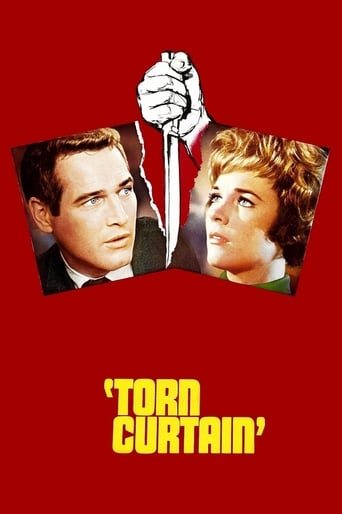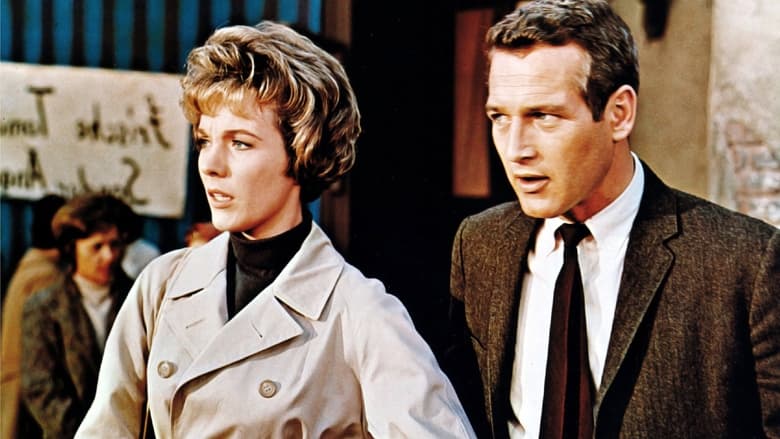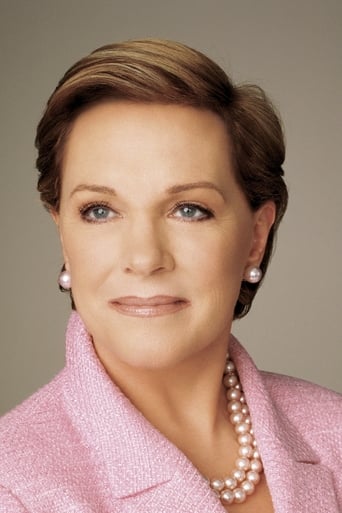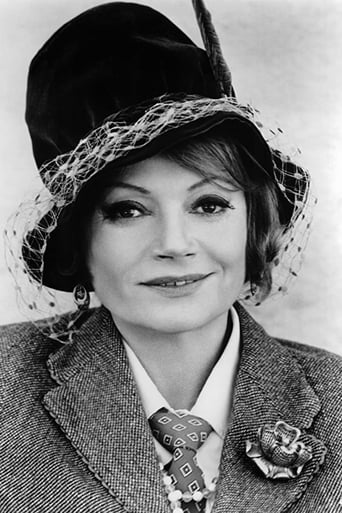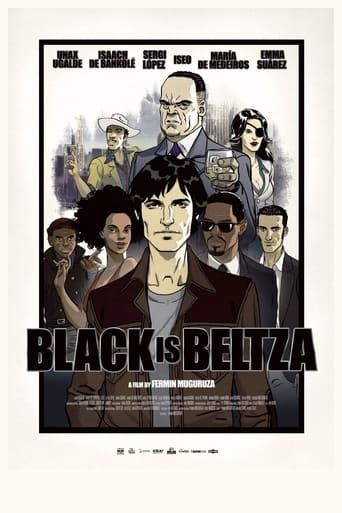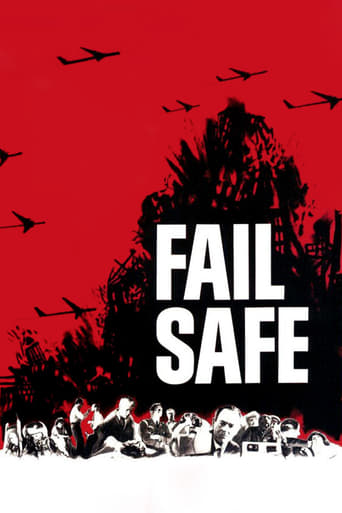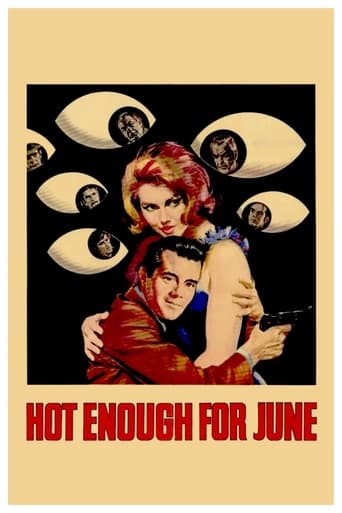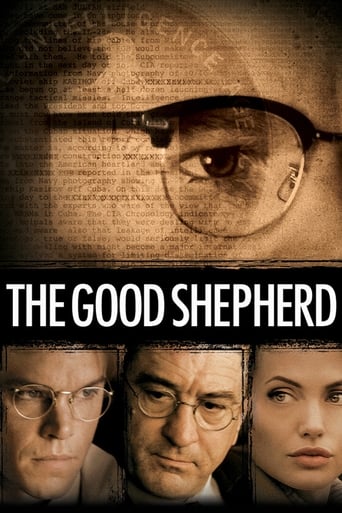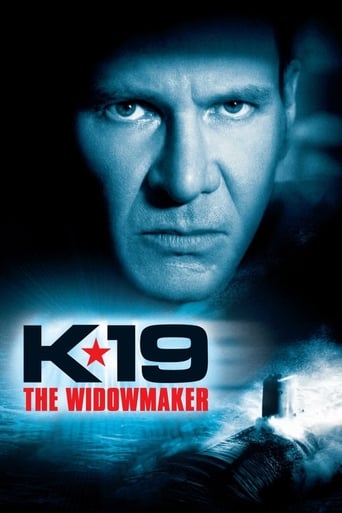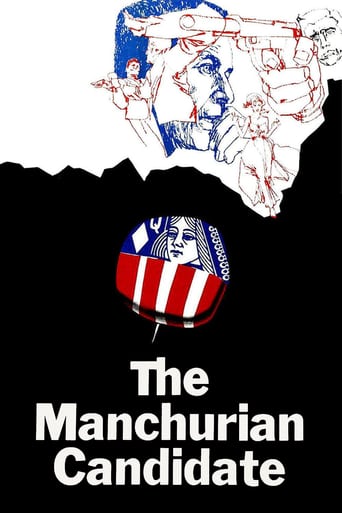Torn Curtain (1966)
During the Cold War, an American scientist appears to defect to East Germany as part of a cloak and dagger mission to find the formula for a resin solution, but the plan goes awry when his fiancee, unaware of his motivation, follows him across the border.
Watch Trailer
Cast
Similar titles
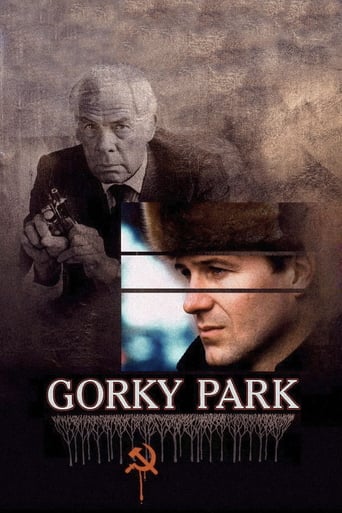
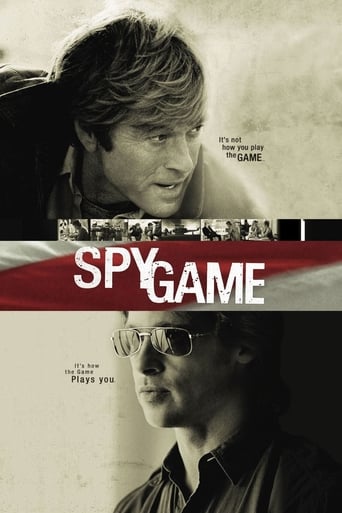
Reviews
Better Late Then Never
Absolutely Fantastic
A terrific literary drama and character piece that shows how the process of creating art can be seen differently by those doing it and those looking at it from the outside.
The joyful confection is coated in a sparkly gloss, bright enough to gleam from the darkest, most cynical corners.
I'm in the midst of a Hitchcock retrospective at MoMA and always enjoy seeing lesser appreciated/renowned Hitchcock films on the big screen. As such I was very curious to see Torn Curtain for many reasons: the unusual casting of Newman and Andrews for a Hitch film, Andrews his first non-blond leading lady and Newman having come from the 'method' acting background. Hitch didn't really want to use either but the producers were set on big name stars in this film and you couldn't get much bigger than Andrews in 1966. Also because longtime collaborator Bernard Herman does not provide the score for this film. On those two points, there is not a lot of chemistry between the two leads. They both do a fine job but no spark. The score is oddly upbeat for a spy/thriller and does nothing to enhance the action and suspense of the film. This last point is a real shame because Hitchcock's film scores are usually so strong. Despite these shortcomings though I have to admit that I really enjoyed Torn Curtain. I think the film looks very good and there are some beautifully composed scenes. The supporting characters are all well conceived, interesting, and memorable. And yes, there are a couple intense and memorable scenes that only Hitchcock would attempt. If Torn Curtain ever comes to the big screen near you, check it out.
This film was not well received when it came out, and has often been criticised for being inferior. But some of those people who claimed that are the ones who praised Hitchcock's genuinely inferior films such as REAR WINDOW (1954, see my review) and his second version of THE MAN WHO KNEW TOO MUCH (1956, see my review), both of which were terrible. In the latter film Hitchcock unfortunately cast Doris Day as the female lead, and she ended up deafening us all with repeatedly singing 'Que Sera Sera' in the middle of what was meant to be a suspense film. Here, Hitchcock cast Julie Andrews, but she pointedly does not start singing from mountain tops about the sound of music, but instead concentrates on the tense espionage tale in which she is involved in the story. So Hitchcock must have learned his lesson about singing actresses in suspense films, which is to make them shut up. Having thus brought that situation under control, it must be said that both Paul Newman and Julie Andrews do very well in this film, and deliver excellent performances. But for sheer acting genius, the accolades must go to the amazing Russian actress Lila Kedrova, who lends such magic, charm and pathos to her supporting role of Countess Kuchinska that the film is worth seeing solely for that. Another Russian actress, who was also a ballerina, is also superb in the film, namely Tamara Toumanova, who plays the prima ballerina on tour who almost brings death and disaster to the hero and heroine in the story by recognising them at the worst possible moment. Her acting career was sparse, and she only appeared in seven films, in one of which (TONIGHT WE SING, 1953) she played Anna Pavlova. It is the period of the Cold War, and in this film Newman plays an American physics professor who defects to East Germany from a physics conference in Copenhagen. He is a fake defector whose true purpose is to meet a German professor named Lindt (excellently played by the Austrian actor Ludwig Donath) and pick his brains, to help him solve a crucial problem. He then wishes to flee back to the West, aided by the American security services and in possession of the information he needs. But everything gets balled up because Julie Andrews, who is in love with Newman, unexpectedly follows him to Copenhagen and then to East Germany as well, and as people say these days on Facebook: 'It's complicated.' There are some marvellous grisly Hitchcock touches in this film, the most spectacular and gruesome being the scene where Newman has to kill a Stasi agent who is after him in the most outrageous manner by dragging his head into a stove. It is one of Hitchcock's most extreme examples of black humour. It's not that we see a lot of blood and gore, but that we are shown in what is intended to be a semi-comical fashion just how difficult it can be to kill someone who keeps refusing to behave himself properly and just die like he is supposed to. This is one of Hitchcock's successful efforts, and one should not listen to the scoffers who try to pretend it isn't.
In the 1960's the tensions of the Cold War ensured that the spy genre was at the height of its popularity both in films and on TV. After the financial failure of Marnie (1964), Alfred Hitchcock chose to play it safer and moved away from the complex psychological aspects of that film and into the more populist, less ambiguous spy thriller territory with his next two films Torn Curtain and Topaz (1969). Unfortunately, the decision did not pay off, as both of those were equally as unsuccessful at the box office as the darker, less straightforward Marnie. For me, Marnie is easily the best of Hitchcock's three 60's box office bombs but of the two spy thrillers, Torn Curtain is superior to Topaz. It's less flabby and more concise, yet both films share a similar characteristic where they begin very well but lose their way somewhat in their final third. With Torn Curtain, the initial set-up is somewhat intriguing and paced very well; it also includes a classic Hitchcock scene where a man and a woman kill a communist security agent in a farmhouse in a particularly protracted an messy fashion, going against cinematic norms and illustrating the sheer difficulty of killing someone. But psychological edginess is eventually disregarded and the plot essentially mutates into a chase movie which is a bit of a let-down considering the potential that has been put in place in the set-up.Its story has an American nuclear physicist defect to East Germany but finds his situation complicated when his fiancé follows him. This one is also typified by featuring two actual mega-stars of its day in Paul Newman and Julie Andrews. It has to be said though that neither of them seem to be at their best here and their performances almost feel a bit forced. Seemingly Hitchcock did not work well with method actor Newman and this clash of styles could be at least partially responsible for the uneasy feeling on-screen. Torn Curtain is hardly a disaster though as it does contain some great moments and benefits from a very polished look. And in fairness, even though it is somewhat routine, it's no less so that a few of Hitchcock's earlier more lauded thrillers. I do feel though that this director is at his best when he is working with material with more psychological edginess, as opposed to the more straightforward suspense embodied in Torn Curtain. It's a solid but unspectacular affair.
Take two outstanding stars; add a handful of top notch character actors; a celebrated director, and you should have a first rate film. Instead, you have wooden performances by Newman and Andrews. Add to it backgrounds that are so unrealistic looking that they are obviously Hollywood stages with artificial lighting and uncreative photography.Worst of all is the plot. The so-called excitement or tension predominantly arises from an unbelievably stupid slip-up by Newman. He draws the mathematical symbol for Pi in the sand of a farmhouse to indicate to a non-English speaking German woman the purpose of his visit. She then introduces him to his contact, but he doesn't erase the symbol with his foot, which any idiot would do, no less a supposedly brilliant scientist.As a result, the East German surveillance bad guy sees the symbol, so he has to be bumped off, and all the subsequent chases derive from this single piece of Newman's stupidity. I would have thought that a film late in Hitchcock's career would have had more substance, and from all standpoints, been creatively better. I skimmed through parts of it, since the dialogue was pretty uninspired and there wasn't much to miss.
